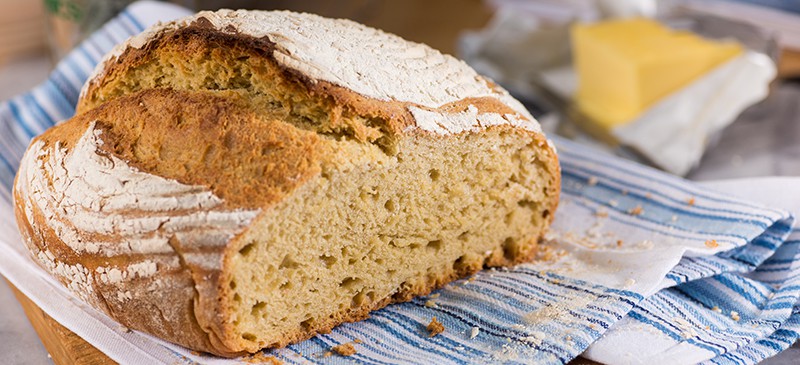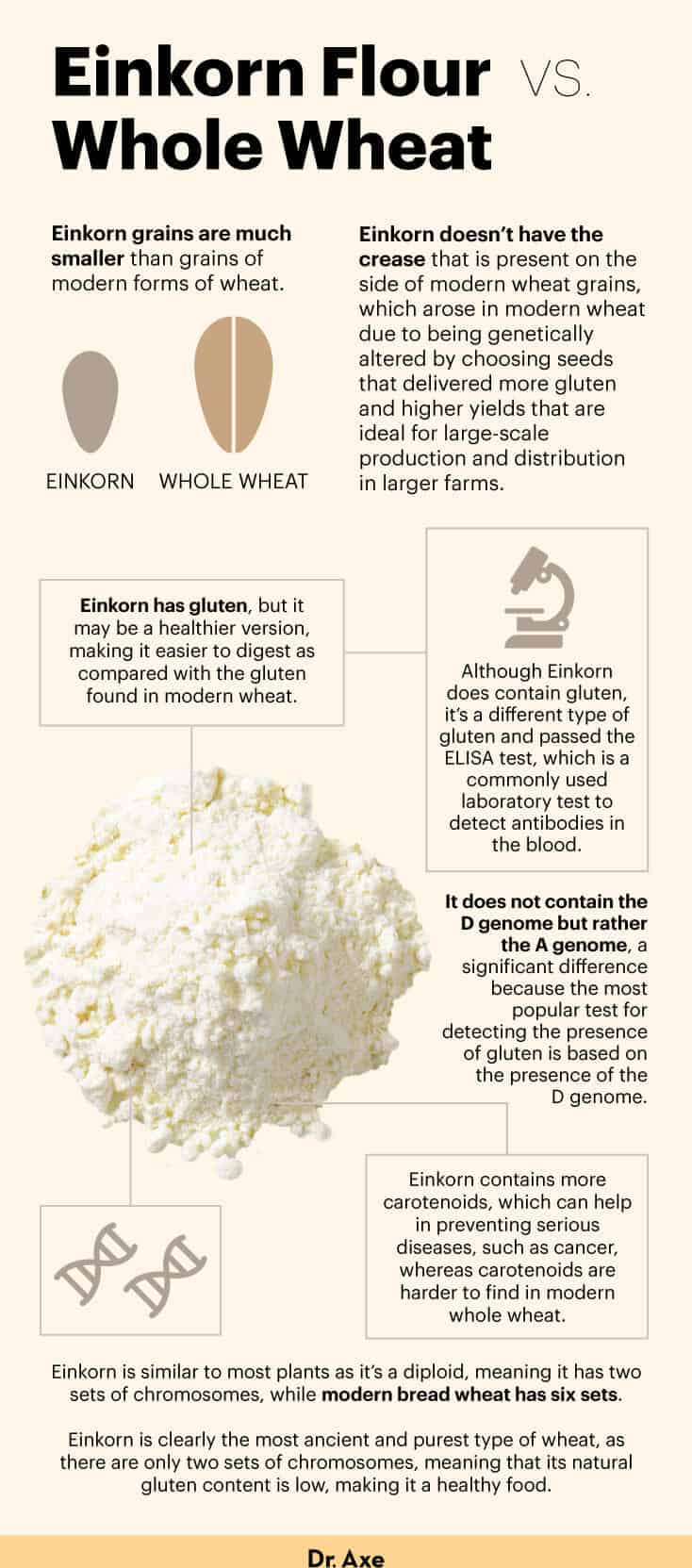This Dr. Axe content is medically reviewed or fact checked to ensure factually accurate information.
With strict editorial sourcing guidelines, we only link to academic research institutions, reputable media sites and, when research is available, medically peer-reviewed studies. Note that the numbers in parentheses (1, 2, etc.) are clickable links to these studies.
The information in our articles is NOT intended to replace a one-on-one relationship with a qualified health care professional and is not intended as medical advice.
This article is based on scientific evidence, written by experts and fact checked by our trained editorial staff. Note that the numbers in parentheses (1, 2, etc.) are clickable links to medically peer-reviewed studies.
Our team includes licensed nutritionists and dietitians, certified health education specialists, as well as certified strength and conditioning specialists, personal trainers and corrective exercise specialists. Our team aims to be not only thorough with its research, but also objective and unbiased.
The information in our articles is NOT intended to replace a one-on-one relationship with a qualified health care professional and is not intended as medical advice.
Einkorn Flour: The Superior Ancient Grain Compared to Whole Wheat
November 19, 2023

Why is healthy wheat — such as einkorn flour — so hard to find?
You may have heard of the words “frankenwheat” or “frankenfoods,” which have been imposed on the public by agricultural geneticists due to the scientific engineering of wheat and wheat food products. This has created a movement away from wheat products due to the damaging effects they may have, in particular the issues people have consuming foods with gluten.
This is where einkorn flour comes in.
While this is not the wheat your great-grandmother used, there are some ancient grains, such as einkorn, available today that are healthier, easier to digest and, frankly, superior alternatives.
What Is Einkorn Flour?
Like two other ancient wheats, emmer (farro) and spelt flour, einkorn is a covered wheat — however, these ancient grains have less gluten and more nutrition than traditional whole wheat.
Ancient grains are thought by many to be inherently more nutritious than modern varieties. Einkorn flour is the most ancient wheat, offering many essential dietary and trace minerals.
It’s a good source of protein, iron, dietary fiber, thiamine and a number of other B vitamins. It also contains a significant amount of the powerful antioxidant lutein, with higher antioxidant levels than durum and bread wheat.
There is a much lower percentage of nutrient loss during processing of einkorn, and it can be substituted for whole wheat flour in most recipes, though it may result in a different texture. Regardless, the results are worth exploring, especially since the nutritional benefits likely outweigh other options.
Nutrition Facts
Einkorn is an ancient wheat variety and one of the first cultivated cereal grains in history. The grain protein is consistently higher than modern wheats, though the amino acid composition of einkorn is similar to wheat flour and considered more nutritious than hard red wheat, based on the higher level of protein, crude fat, phosphorous, potassium, pyridoxine and beta-carotene.
A 30-grams serving of 100% organic, all-purpose einkorn flour contains about:
- Calories: 99.9
- Total Carbohydrates: 20 g
- Fiber: 2 g
- Total Fat: 0.5 g
- Protein: 4 g
- Zinc: 4.5 mg (41% DV)
- Manganese: 0.6 mg (26% DV)
- Niacin: 1.2 mg (8% DV)
- Iron: 1.1 mg (6% DV)
*Daily Value: Percentages are based on a diet of 2,000 calories a day.
People are often confused about the difference between einkorn flour and whole wheat flour. For starters, einkorn grains are much smaller than grains of modern forms of wheat.
Einkorn wheat has gluten, but it may be a healthier version, making it easier to digest compared to the gluten found in modern wheat. It doesn’t contain the D genome but rather the A genome, a significant difference because the most popular test for detecting the presence of gluten is based on the presence of the D genome.
Although einkorn does contain gluten, it’s a different type of gluten and passes the ELISA test, which is a commonly used laboratory test to detect antibodies in the blood.
Einkorn also contains more carotenoids, which can help in preventing serious diseases, such as cancer, whereas carotenoids are harder to find in modern whole wheat.

Health Benefits
1. Reduces Risk of Eye Disease
The process of sprouting can provide significant benefits to many of our foods. In a study published in the Journal of Agricultural and Food Chemistry, sprouting times and illumination conditions of carotenoids found in spelt, durum, emmer and einkorn were investigated.
It revealed that carotenoid levels significantly increased during sprouting, particularly under light exposure, though concentrations of some other lipophilic antioxidants produced a smaller effect.
Dietary carotenoids are thought to provide health benefits in decreasing the risk of some diseases, include eye diseases like macular degeneration, because the beneficial effects of carotenoids are thought to be due to their role as antioxidants.
Research also shows that lutein, zeaxanthin and beta-carotene, found in einkorn, may be protective in eye disease because they can absorb damaging light that enters the eye. This information gives way to the idea that wheat sprouts could be potential functional ingredients to increase the nutritional value of cereal products.
2. Limits Allergy Symptoms
The number of wheat-allergic patients has increased in recent years, presenting the need and desire for less allergenic wheat varieties. The aim of a study published in the Journal of Nutritional Science and Vitaminology was to screen 324 varieties of wheat chosen from various parts of the world.
To ensure the best screening, testing was examined with major wheat allergens or components of gluten, including glutenin and gliadin. The patients’ antibodies reacted to these three allergens, making them suitable for the primary screening for the less allergenic wheat varieties so there was a reliable comparison.
Several varieties, including einkorn, were noted as less allergenic. These findings will lead to additional research of less allergenic wheat options and likely become mother plants for breeding with the goal of helping wheat-allergic patients eliminate or treat food allergies.
3. Helps You Lose Weight
When the body is able to digest foods better, it can ultimately help with weight loss.
Einkorn flour is a healthier choice than traditional flour, and while it’s best to consume all wheat in moderation, choosing einkorn ancient grains over more modern wheat can help reduce the risk of obesity and may help you lose weight, in particular because studies show that the quality of einkorn surpasses other wheats.
While einkorn wholemeal is limited in dietary fiber, it’s rich in proteins, unsaturated fatty acids, fructans and trace elements, such as zinc and iron. The good concentration of several antioxidant compounds combined with these trace elements contribute to the excellent nutritional properties of einkorn flour.
Functional foods have become more important, and the health benefits of einkorn suggest that it may play a significant role in human consumption and the development of new or specialty foods that contain the best nutritional quality. In any case, to get the benefits, make sure the einkorn product is in its purest form and not combined with chemicals or miscellaneous ingredients.
4. May Help Delay the Onset of Type 2 Diabetes
An animal study conducted at the Department of Endocrinology and Internal Medicine at Aarhus University Hospital in Denmark investigated the physiological effects of ancient wheat whole grain flour diets on the development and progression of type 2 diabetes, specifically to look at the glycemic responses.
An intervention study was conducted, involving the consumption of five different diets, including emmer, einkorn, spelt, rye flour and refined wheat, for a period nine weeks.
Testing revealed a downregulation of hepatic genes, the process by which a cell decreases the quantity of a cellular component in response to an external variable. The spelt and rye induced a low acute glycemic response. The wheat group had higher HDL cholesterol and total cholesterol levels.
The study concluded that ancient wheat diets decreased cell production relating to glucose and fat metabolism, equivalent to prevention or delay of diabetes development. Other animal research unearthed similar findings.
Thus, it’s a good idea to include ancient grains and flours like einkorn flour in any diabetes diet plan.
5. Fights Disease with Phenolic Acids
The whole meal flour of wheat and einkorn flour is rich in phenolic acids. Phenolic acids, through ingestion of some plants, fruits and vegetables, protect our bodies from oxidative damage and diseases, such as coronary heart disease, stroke and cancers.
Research published in the Journal of Food Science and Technology studied the influence of phenolic acid content and antioxidant activity of whole meal flour water biscuits and puffed kernels of einkorn and bread wheat. Overall, from flour to water biscuit, the total soluble conjugated phenolic acids increased in the einkorn, while some phenolic acids decreased as ingredients were added.
The results confirmed that the antioxidant activity increased during processing and was highest under the most drastic puffing conditions of the einkorn and bread wheat. The good news is that the einkorn maintained the nutritional value, even throughout the change in form to a puffed state.
6. Contains Less Gluten
For those with sensitive tummies, ancient forms of wheat like einkorn are typically easier to digest than wheat that’s mass-produced, particularly in the U.S., due to the lower levels of gluten. This is good news for endurance athletes, too, since they often look for a grain-like carb that’s easy to digest before racing.
Different types of wheat have different numbers of chromosomes. Some studies show that the ancient wheats, with fewer chromosomes, tend to have lower levels of gluten, and gluten causes sensitivities for many.
Einkorn, the oldest known type of wheat today, has 14 chromosomes, which makes it a diploid wheat. Research shows that with its lower gluten content, einkorn can be a good type of wheat for people to start with after being on a gluten-free diet.
Durum wheat, most often used for pasta, and emmer are tetraploid wheats, containing 28 chromosomes, while modern wheat and spelt have 42 chromosomes, known as hexaploid wheats. However, if celiac disease is a problem for you, einkorn flour is still not safe for consumption.
How to Use
Many foodies rave about the nuttier taste of einkorn versus the flavor of everyday wheat. Einkorn berries are smaller than wheat, spelt or kamut berries and can be cooked in a water-to-grain ratio of 2:1 for about 30 minutes, then used as a side dish for meats like fish and chicken, tossed with veggies and dressing for a more hearty salad, and simmered with warming spices like cinnamon and served with Greek yogurt.
Einkorn flour has a soft texture for making delicious breads, cookies, muffins, waffles and pancakes. You can usually replace wheat flours with einkorn flour in most recipes, and here’s an einkorn flour recipe to get your started:
Risks and Side Effects
It’s best to make sure that any grain is safe, especially if you are sensitive to gluten. While it’s not gluten-free, it’s much more easily digested and often fine for most people with gluten intolerance symptoms to eat.
However, it’s not safe for anyone who has diagnosed celiac disease, as einkorn contains gluten.
Final Thoughts
- Einkorn wheat is an ancient wheat grain that’s healthier than modern wheat. That’s partly due to its much lower gluten content. It’s not gluten-free, but it is lower in gluten and possibly easier on the digestive system than traditional wheat flour.
- If you don’t have celiac disease, einkorn flour is a great choice and definitely preferable to whole wheat.
- It’s been shown to help reduce the risk of eye disease, limit allergy symptoms, help you lose weight, possibly help delay the onset of type 2 diabetes and prevent the risk of disease.
- If you’re tired of the negatives traditional whole wheat holds and want a superior wheat, einkorn wheat is just the thing.












